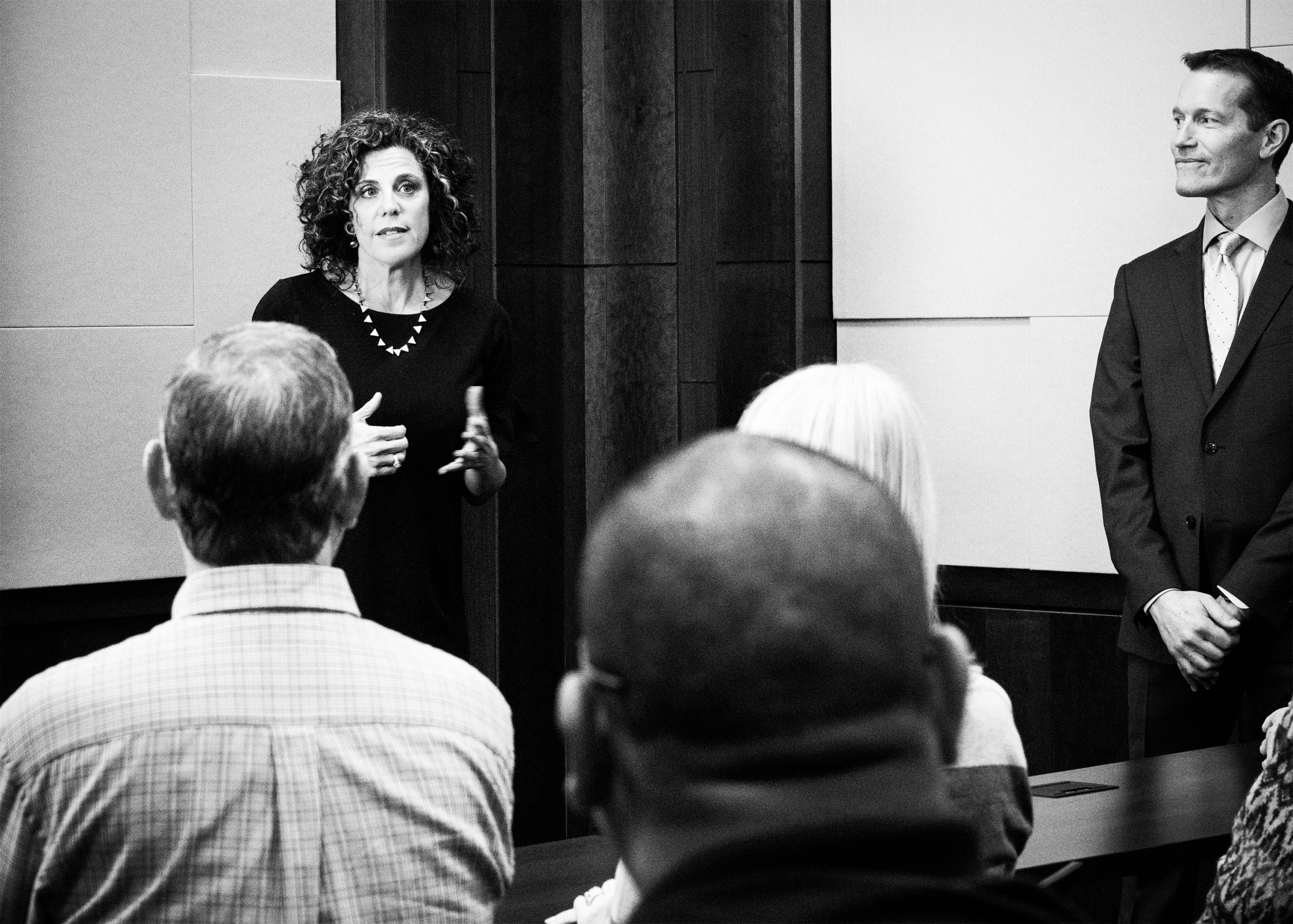Retirement Security: Getting There Is What Matters
4 minute read
For Abby Havermann, it doesn’t matter how you get there just as long as you get there. It’s a theme that plays on a loop when it comes to her clients and their retirement planning needs.
“The vehicle is not important,” she says. “Nobody ever comes in and says ‘the most important thing to me is that I’m in Coca-Cola stock.’ The most important thing is that they have enough money to last their whole lives.”
Havermann is a financial planner with Denver-based Havermann Financial Services where she works alongside her husband Brian, a certified financial planner. The two not only share a home and office but also a belief that everyone should be given the opportunity to live the retirement they’ve always dreamed of living.
Clearly, everyone faces many of the same challenges when planning for retirement. Market ups and downs, rising health care costs, caring for elderly parents and longevity risks are just a few of the hurdles Havermann tries to mitigate with well-rounded portfolios for her clients. However, she knows that sometimes women face an even steeper climb when planning for life after work.
“A vast majority of all women will eventually be solely in charge of household finances,” Havermann explains. “That’s partially due to women having a longer average lifespan than men. But only 20 percent of women feel that they’re well prepared to make smart financial decisions.”
Havermann prides herself on being able to address the unique needs of women and explaining complex situations in clear, simple language. It’s important to her that all women become financially independent and knowledgeable so they can make the right decisions down the road.
A vast majority of all women will eventually be solely in charge of household finances.
However, making the right decisions before retirement is just as important. When you consider that women live longer than men and face higher health care costs throughout their lives, protected lifetime income can prove to be very beneficial. Time spent away from work and an 18-percent pay gap between women and men further strengthen the case for early planning and adding a source of guaranteed monthly income.
She explains to her clients that a source of protected lifetime income is a key consideration in any retirement portfolio and that the only way to guarantee income – aside from a pension or Social Security – is through an annuity.
If clients get hung up on the prospect of adding an annuity because of misconceptions, she makes a point of explaining that annuities can be very effective tools, especially when building retirement plans.
According to Havermann, “Once I show my clients what we’re doing with their plan, they almost never care what the tool is because they know that we’re invested in them and determined to meet their financial goals.”
However, before she delves into a client’s financial past, present and future, Havermann makes a point of getting to know them first. It’s something she feels is critical in helping her build an effective retirement plan.
She typically avoids talking about specific products in the beginning and instead asks them about their interests, lifestyle and what they’re looking for down the road. Words like “fixed,” “variable” and “deferred” are for later discussions, she feels. And it’s an approach that has paid off well for Havermann.
“If you have a solid relationship with a client, their questions are anticipated and addressed well before they would ever become an issue,” she explains. “Because it’s not about selling a product. It’s about creating a plan for them to assure that their goals are met.”
As Havermann found out years ago, being a “people person” in the world of financial planning can be a priceless commodity. “Oftentimes, client meetings are about relationship building, but that has always come very natural for me,” she says.


Part of the reason she’s so comfortable and effective when it comes to the personal side of financial planning is rooted in her background as a therapist, health care worker and teacher – all careers she had prior to becoming a financial professional.
But how Havermann handles some of the more complicated financial aspects of retirement planning is what has made her so successful. “I talk in broad strokes on the importance of keeping some money safe,” Havermann says. “When they ask how, I’ll bring up an annuity and how it’s a life insurance product and the only way to get a guarantee. Then I’ll go into explaining how insurance companies are able to do it.”
When it comes to compensation, there are different ways financial professionals can structure their incomes. Some are paid all upfront while others get paid over time. Havermann prefers the latter because it provides the incentive for her to service the account over the long term to ensure that the client remains on track for their goals.
“We have incentive to keep meeting with these folks,” she explains. “We have guaranteed ourselves income as well for a long period of time.
If you asked Havermann 15 years ago if she could see herself as a financial planner, she probably would’ve laughed and said “no.” But when she met her husband, she took a huge leap of faith. “I didn’t think I’d pass the Series 7 exam,” Havermann says. “I thought, If I pass, it’s a sign to do it. And I did it in 10 weeks while raising a 10-year-old.”
Havermann is the first to admit that there was a steep learning curve and some painful years in between but believes everyone creates their own future with the right thoughts, energy and, of course, retirement portfolio. She’s genuinely excited about what lies ahead and doesn’t stop to look back. Well, maybe an occasional glance when she thinks about where she’s been and how she ended up doing something she truly loves.